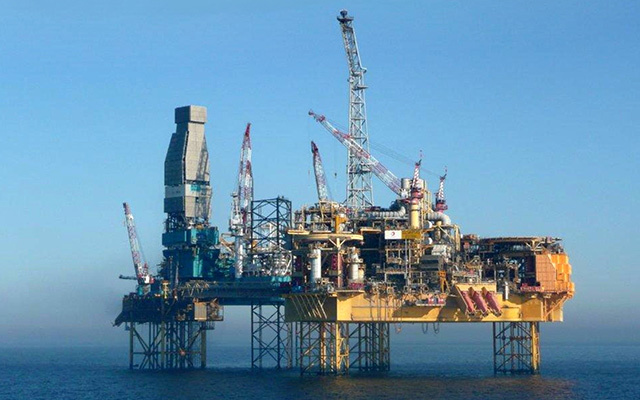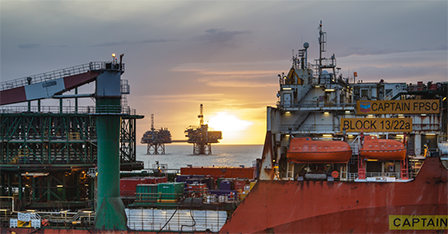
A corrosive drilling fluid may have been to blame for the gas leak at Total’s Elgin platform last year, it has emerged.
And last night experts warned an extensive programme of repairs could be needed across the North Sea in light of emerging evidence.
The French energy giant is planning to “kill” and replace 10 other wells in the area in light of the lessons learned from the Elgin accident.
Patrice de Vivies, chairman of Total UK, said he had already warned Shell, which operates the neighbouring Shearwater field, that its operations could also be at risk from the problem.
Shearwater, like Elgin, produces gas at high pressure and high temperatures.
“With Shell we have shared even more as they have a neighbouring field, Shearwater, meaning they potentially have, perhaps, not identical, but similar problems,” Mr de Vivies said.
Liane Smith, founder of well integrity specialist Intetech, part of Wood Group, said: “It’s an operational well, and there are hundreds of thousands of those out there, and any one of them at any time potentially could suffer from the sort of problem Elgin has apparently had, so we need to know about it as an industry.”
John Downs, a chemical engineer who runs a consultancy, said that “an extensive well repair programme may be needed if the stress corrosion cracking caused by bromide brine in Elgin is also happening elsewhere”.
Drilling fluids, such as calcium bromide, are commonly used in other deep sea wells across the world.
Total’s G4 well in the Elgin field leaked for a month and a half from March 2012, creating a huge cloud of flammable gas above the platform about 150 miles east of Aberdeen.
An air and sea exclusion zone was imposed as personnel were evacuated from the area, with the incident being described as the worst leak in the North Sea for 20 years.
